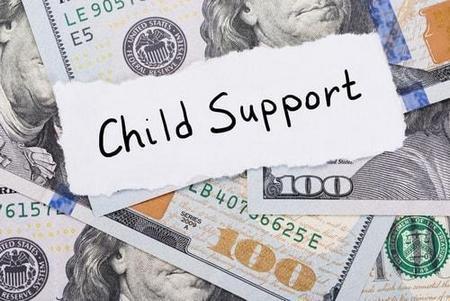Recent Blog Posts
Parenting Issues After a Divorce Involving Domestic Violence
 When parents end their marriage, they must continue work together to co-parent their children after divorce. However, their parental roles and responsibilities can be complicated if domestic violence occurred during the marriage.
When parents end their marriage, they must continue work together to co-parent their children after divorce. However, their parental roles and responsibilities can be complicated if domestic violence occurred during the marriage.
While it is essential to protect the safety of spouses and children who have suffered violence or abuse, it is also important for children to have a relationship with both parents. But how well are parents able to work together following violent situations?
A recent study from researchers at the University of Illinois looked at mothers who had experienced domestic violence during the first year after their divorce to see whether they had any issues or conflicts while acting as co-parents with their ex-spouse.
Two Types of Intimate Partner Violence
The study identified two different types of violence that were experienced during marriage:
Out of State Relocation and Child Custody
 People do not stay in one place as often as they once did. With the global economy entirely interconnected and the job market in a seemingly constant state of flux, family moves are more common. However, so are divorces. In Illinois, the laws regarding the allocation of parental responsibilities-formerly called child custody-provide requirements that must be met before children can be moved a significant distance from their current home.
People do not stay in one place as often as they once did. With the global economy entirely interconnected and the job market in a seemingly constant state of flux, family moves are more common. However, so are divorces. In Illinois, the laws regarding the allocation of parental responsibilities-formerly called child custody-provide requirements that must be met before children can be moved a significant distance from their current home.
A Child’s “Home State”
For the purposes of parenting plans, a child must have a “home state.” This is the state in which a court would have jurisdiction to decide cases involving the child. Illinois is a child’s home state when (1) that child has lived in Illinois for six months (or since birth, if the child is not six months old yet), and (2) the child has no other home state, and/or the child (or their parent) has significant connections to the state. If a parent intends to move to another state and take their child with them, the child’s home state will change.
What Happens if a Parent Does Not Pay Child Support in Illinois?
 Whether parents are married, divorced, legally separated, or were never married, they both have an obligation to support their children financially. Failure to pay court ordered child support can result in serious consequences, and parents should be aware of the steps that courts can take to enforce a child support order and punish a parent for non-payment.
Whether parents are married, divorced, legally separated, or were never married, they both have an obligation to support their children financially. Failure to pay court ordered child support can result in serious consequences, and parents should be aware of the steps that courts can take to enforce a child support order and punish a parent for non-payment.
Illinois Child Support Enforcement Law
A person is guilty of the offense of "failure to support" when he or she willfully fails to meet his or her support obligations while he or she has the ability to pay them. Illinois law provides several remedies for parents who do not meet their child support obligations, including:
-
Contempt of court - A child support order is a court order, and a parent who fails to pay his or her court-ordered child support may be held in contempt of court. This can result in punishments that include being placed on probation or sentenced to jail time of up to six months. During imprisonment, a parent may be permitted to be released in order to work, and the court may order some or all of the earnings from this employment to be paid toward child support.
What You Should Know About Reverse Mortgages, Part 1
 If you watch television at certain times of the day, you are likely to see occasional advertisements for reverse mortgages. These ads often run in similar timeslots as commercials for arthritis medication and electric scooters. It is clear that they are intended to reach a certain demographic-namely, seniors who are starting to consider the reality that they will not live forever. As with most television pitches, it understandable that the audience would be skeptical, but a reverse mortgage may be an option for certain individuals and families.
If you watch television at certain times of the day, you are likely to see occasional advertisements for reverse mortgages. These ads often run in similar timeslots as commercials for arthritis medication and electric scooters. It is clear that they are intended to reach a certain demographic-namely, seniors who are starting to consider the reality that they will not live forever. As with most television pitches, it understandable that the audience would be skeptical, but a reverse mortgage may be an option for certain individuals and families.
Reverse Mortgages Defined
Most people understand that a standard mortgage is a financial arrangement in which a lender provides a borrower with money to buy real estate, including a home. The property itself is the collateral used to secure the loan. The borrower makes regular installment payments until the amount borrowed and any accumulated interest is repaid.
Modifying a Divorce Judgment Under Illinois’ New Child Support Law
 When parents complete the divorce process, their final divorce decree will specify how parental responsibilities will be allocated, the parents’ schedule for parenting time with their children, and the amount of child support that one parent will pay to the other. But while this is meant to be a permanent agreement (or, if parents were unable to reach an agreement, a judgment by the court), the law recognizes that people’s circumstances change, and a divorce decree may need to be modified at some point in the future.
When parents complete the divorce process, their final divorce decree will specify how parental responsibilities will be allocated, the parents’ schedule for parenting time with their children, and the amount of child support that one parent will pay to the other. But while this is meant to be a permanent agreement (or, if parents were unable to reach an agreement, a judgment by the court), the law recognizes that people’s circumstances change, and a divorce decree may need to be modified at some point in the future.
Following the implementation of Illinois’ updated child support law, which went into effect in July 2017, parents may wonder if their divorce decree should be updated to reflect the new methods for calculating the amount of child support payments. However, before petitioning the court, they should understand when these types of modifications are allowed.
Could There Be a Genetic Component to Divorce?
 For years, scientists have known that children of divorced parents are more likely to get divorced as adults. People have speculated that this was because children spend time with their divorced parents during their formative years and therefore grow up to have a similar lifestyle. However, a new study suggests that genetics may play a role in whether children grow up to get divorced or not.
For years, scientists have known that children of divorced parents are more likely to get divorced as adults. People have speculated that this was because children spend time with their divorced parents during their formative years and therefore grow up to have a similar lifestyle. However, a new study suggests that genetics may play a role in whether children grow up to get divorced or not.
The study was conducted by Virginia Commonwealth University and published in the journal Psychological Science. It examined data regarding divorce in adopted children and children who grew up around their biological parents. The study’s findings showed that children who did not grow up knowing their biological parents and siblings still had a tendency to match their biological family’s decisions regarding divorce. The adopted children were less likely to have similar histories of divorce as their adoptive parents. This could mean that many of the choices we make about our relationships as adults are influenced by our DNA. When it comes to divorce, nature may be a stronger factor than nurture.
New Federal Law Aimed at Protecting Seniors
 Older men and women are often among the most vulnerable members of our society. Children, of course, are also vulnerable, but as a whole, we have been historically more likely to aggressively protect children than adults and seniors. Unfortunately, this means that is relatively easy for elder men and women to be exploited-often by those who have been entrusted with guardianship or other responsibilities. With proper estate planning that includes contingency clauses and protections, it may be possible to reduce the likelihood of such abuse. A new federal law will also provide additional help in the battle against elder abuse and exploitation.
Older men and women are often among the most vulnerable members of our society. Children, of course, are also vulnerable, but as a whole, we have been historically more likely to aggressively protect children than adults and seniors. Unfortunately, this means that is relatively easy for elder men and women to be exploited-often by those who have been entrusted with guardianship or other responsibilities. With proper estate planning that includes contingency clauses and protections, it may be possible to reduce the likelihood of such abuse. A new federal law will also provide additional help in the battle against elder abuse and exploitation.
Bipartisan Efforts
The Elder Abuse Prevention and Protection Act was drafted by Representative Elizabeth Esty, a Democrat from Connecticut, and Representative Barbara Comstock, a Virginia Republican. The bipartisan measure passed the House and Senate and was signed into law by President Donald Trump earlier this month.
Protecting a Family-Owned Business During Divorce
 When a couple ends their marriage in divorce, the process of separating their lives from each other can be a lengthy, difficult process. Determining how to divide physical property, financial assets, and debts can be a complex matter, and when one or both spouses own a business, this process can become even more complicated.
When a couple ends their marriage in divorce, the process of separating their lives from each other can be a lengthy, difficult process. Determining how to divide physical property, financial assets, and debts can be a complex matter, and when one or both spouses own a business, this process can become even more complicated.
Spouses who are business owners often have many of their mutual financial assets tied up in the business, making it difficult to divide these assets while keeping the business intact. Taking the following measures can help you ensure that your family-owned business will survive your divorce and that you will be able to maintain financial stability:
-
Consider a prenuptial or postnuptial agreement - If you owned a business prior to your marriage, a prenuptial agreement can specify that you will retain ownership in the case of divorce. For a business that was formed after your marriage, a postnuptial agreement can define how ownership will be handled after divorce.
New Child Support Law Now in Effect
 Until just a few months ago, Illinois courts calculated child support as a percentage of the income of the parent with fewer parental responsibilities-referred to in the past as the non-custodial parent. Since July 1, 2017, however, a new law has brought child support guidelines in Illinois up to date with modern trends and started improving the lives of all parties involved.
Until just a few months ago, Illinois courts calculated child support as a percentage of the income of the parent with fewer parental responsibilities-referred to in the past as the non-custodial parent. Since July 1, 2017, however, a new law has brought child support guidelines in Illinois up to date with modern trends and started improving the lives of all parties involved.
The Old Child Support Law
The previous law in Illinois has long been criticized for being inequitable, with not enough potential exemptions taken into account, and an alleged unfair burden on the non-custodial parent. Under the old guidelines, there were two primary factors in determining the amount of support to be paid: the income of the non-custodial parent and the number of children to be supported.
Critics found this unfair not only because not enough exemptions were taken but also because, in some situations, it effectively punished a supporting parent financially for spending time with his or her child. For example, if a father was the party paying support for two children, he would have paid 28 percent of his net income regardless of how much parenting time he enjoyed. If he had a substantial amount of parenting time, he would likely spend more money on the children while they were in his care, in addition to providing for basic needs like beds, bedding, and food. However, he would still be required to pay the same amount of child support as he would have with little to no parenting time.
Understanding Powers of Attorney
 Estate planning can be a difficult task for many individuals. Rare is the person who is excited about confronting his or her own mortality. The reality is that none of us will live forever, and estate planning affords us the opportunity to provide for our family members and loved ones well beyond our lifetime. Some elements of estate planning, however, are intended to take effect, if necessary, while you are still living so that your affairs can be properly managed, no matter what happens to you. Powers of Attorney are among the most important estate planning instruments, but they are often overlooked by those who are unfamiliar with their application.
Estate planning can be a difficult task for many individuals. Rare is the person who is excited about confronting his or her own mortality. The reality is that none of us will live forever, and estate planning affords us the opportunity to provide for our family members and loved ones well beyond our lifetime. Some elements of estate planning, however, are intended to take effect, if necessary, while you are still living so that your affairs can be properly managed, no matter what happens to you. Powers of Attorney are among the most important estate planning instruments, but they are often overlooked by those who are unfamiliar with their application.
Two Types
There are two different kinds of Powers of Attorney (POA): Power of Attorney for Property and Power of Attorney for Health Care. The two categories refer to the subject matter covered by the document, but both types give a trusted friend or family member the authority to make decisions for you in the event you are not able to make them for yourself. As their names imply, a POA for Property gives your chosen individual or entity-known as an agent-the power to make decisions regarding your finances, assets, and debts while a POA for Health Care appoints an agent to make medical and health-related decisions. By using POAs properly, you can help protect your family from uncertainty and unnecessary costs associated with guardianship proceedings.












